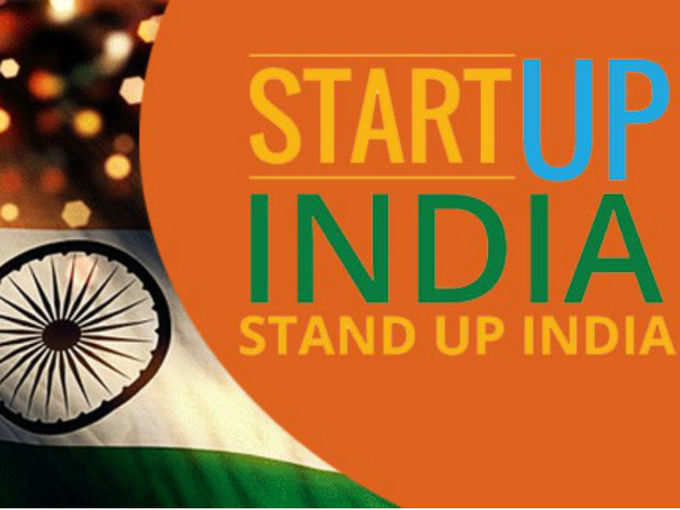
It’s not that the company hasn’t tried hard to stay afloat in an increasingly predatory environment. Last year, Snapdeal offered flat Rs 10,000 off on iPhone7 and iPhone 7 plus for American Express credit card users, amongst many other such incentives to gain loyal consumers, the key to remaining alive. You may find the company at fault for downsizing, but they’re not. According to some investors that have been closely watching this whole scenario pan out, Snapdeal has two choices: 1) Try to compete with heavier discounts being doled out by larger competitors or 2) Just ignore the competition, which can never be done. Either way they’re losing their business. So, the question then is what are Snapdeal’s real pain points and is it alone in this fight?
It was while digging for these answers that
So, what is Capital Dumping and why is it such a big deal?
Dumping, in reference to international trade, is the export by a country or organization of a product at a price that is lower in the foreign market than the price charged in the domestic market.
When we ask, 'Can markets solve problems?' we should recollect our blind trust in the idea that only good will emerge when distinctive entities fight it out in the market. Market fundamentalism can be risky particularly if a few players have an unfair advantage (money muscle in this case).
During researching this story, Business Insider spoke to multiple big investors and companies in the ecosystem. However, given the sensitivity of the topic, all of them requested anonymity.
This is what one experts said: “On one hand we talk about the freedom in doing business, on the other hand we’re curbing that freedom by imposing regulations and saying we want a level playing field. If you want equality-- go be a social worker and not an entrepreneur.
Another expert had a totally contrarian view: “Capital Dumping is true and it’s happening and no one is doing anything about it. The government is quiet; the CCI is not saying anything. The case clearly falls in the jurisdiction of CCI. Investors will stop investing in local companies, jobs will be lost, and economy of the country will be hurt. It’s high time we regulate the market or fail as a nation.”
In that case, what is really happening on the ground?
Impact on India’s buzzing eCommerce sector
 The eCommerce sector in India is rapidly growing. The internet business market was worth about $3.9 billion in 2009, it went up to $12.6 billion in 2013. In 2013, the e-retail fragment was worth US$2.3 billion. By 2020, India is required to generate $100 billion online retail income out of which $35 billion will be through design web based business.
The eCommerce sector in India is rapidly growing. The internet business market was worth about $3.9 billion in 2009, it went up to $12.6 billion in 2013. In 2013, the e-retail fragment was worth US$2.3 billion. By 2020, India is required to generate $100 billion online retail income out of which $35 billion will be through design web based business.The brick and mortar retailer community has dependably been concerned about the infusion of foreign capital in eCommerce marketplaces in India and has persistently been blaming such eCommerce players for dumping foreign capital to offer disruptive prices with a goal to diminish healthy competition in the market. However, now even the domestic eCommerce players have begun raising a few eyebrows on the easy accessibility of foreign capital to the foreign eCommerce marketplaces operating in India and the hefty discounts and offers given by such marketplaces to the customers.
Experts, some of whom are known investors in startups, that Business Insider spoke to while digging into the matter said, “Unregulated markets can be anti-competitive, on the grounds that it gives a few players undue advantage. Take the instance of
The Festive sale: Where discounts count more

An article published by a leading media house, stated that
So, how does this phenomenon really work? A very clear example of that would be the case of a US-based startup, Diapers.com, which was taken off the market within a few months of its existence by Amazon, in what was allegedly a case of predatory pricing by the global eCommerce behemoth to acquire the startup.
Diapers.com versus Amazon
Diapers.com started as a diaper selling startup. They went on building their customer base and then went to other products. The company became such a success that even Amazon started taking notice. Amazon “supposedly” reduced their diaper prices by 20%, at the same time negotiating to buy out the company. The founder refused by giving a figure that was a hell lot more than it was valued ($3 billion). Retaliating, Amazon further reduced the prices of diapers by 50-60% on its platform. Now no negotiation could happen, since the diaper market as a whole had been disrupted by these ‘low prices’. Amazon eventually brought the company right on their knees and bought them at a very cheap price.
We can take a gander at our own particular economic history. Indian textiles industry, for instance. It has a long history extending back to centuries and over years it had build up a rich assortment — also a thriving economy around it. However, amid the British period the whole sector was pushed to the brinks of extinction by the machine made garments imported from England.
Amazon on the other hand maintains, “We continue to work towards creating a robust eco-system for the small businesses – we today have about 150k sellers on our platform, that grew 160% YoY, and we continue to enhance this eco-system with multiple India specific initiatives.”
Ola versus Uber

This state of existence doesn’t change much in the ride-hailing space, which has seen some of the biggest investments pouring in over the past few years. The problem, experts say is almost identical to what Flipkart or Snapdeal is facing, from let’s say with Amazon. While Ola may not face head-on competition from Uber in almost 85% of its markets, however, it faces stifling competition from Uber in 15% of its biggest markets that include cities like Delhi, Mumbai, Chennai and Bangalore, the biggest ride-hailing hubs for both the players. For Ola, much like Flipkart the key to continued existence has been investing in technology to make their limited resources work more effectively and efficiently. For instance, Ola introduced Select, their lighter version that runs on 2G internet and to help drivers and consumers in tier2 cities, they introduced 9 different languages on their platform. Ola has recently been on an overdrive hiring talent to develop innovative tech on their platform. However, the fear that their global competitor might throw in a few extra bucks and make a killing in hiring good tech developers always rings loud, as does the fear of what else those extra bucks can do.
Is Modi’s Startup India-Standup India at risk, then?

The experts that BI spoke to have a clear point to make here. They say, “Modi's Startup India Standup India initiative is probably not going to succeed and India's startup ecosystem won't ever take off, if a dumping-like strategy can be utilized against Indian startups. We're seeing a couple of self assumed economists and pundits deriding the idea of controlling the market. To make it clear very clear, this is not an employment pitch."
An expert from one of Bangalore’s biggest investment firms said, “If India's largest web firms flop, accordingly a huge number of jobs won't be created. It is interesting to note here that Chinese web firms have created over 2 million occupations. In India
Why are Investments hurting?
So what is it that investors look at when pouring in the much required moolah into these internet companies? Some experts say, “Allowing a dumping-like strategy could make foreign interest in Indian-tech fall. In China after the government prohibited certain MNCs, foreign interest in web boomed (2004–2014: generally $200 billion) through investments into Chinese firms. When a big tech-company starts to flounder, investors, currently all foreign in nature, start pulling back to a wait-and-watch approach to see if the company can ride out the tough time. That is exactly what is happening in the Indian scenario today. As Snapdeal, Flipkart and Ola struggle to raise funds, all investors, even those with equity in those companies such as Tiger Global,
The Vital Stats of the Big Fish
Amazon’s losses in India jumped up from Rs 1,724 crore in the year ago period, while revenue more than doubled to Rs 2,275 crore, up from Rs 1,022 crore in financial year 2014-15. The figures are from documents filed with the Registrar of Companies.
Amazon India's biggest vendor in the country, Cloudtail India, which sells around 10% of Amazon India's products posted a sales of Rs 1,145 crore in 2014-15 After Cloudtail's sales, it can be said that Amazon India garnered more than Rs 10,000 crore in sales this fiscal
Uber has already lost a whopping $1.3B in the first half of 2016! Uber raised $1.2 billion in funding in June, so you might justifiably ask why it is reportedly closing in on $1 billion more less than six months later. The answer may just be an aggressive international expansion in Asia, with a particular focus on India, given how they exited their other big Asian bet-China.
Snapdeal plans to lay off 1,300 employees, will assess resources
Amazon India lead the loss tally in 2016 followed by Flipkart, Snapdeal at Rs 3, 572 crore. Amazon India spent heavily on marketing, discounts and tech infrastructure.
SoftBank Records $351-Million Loss on Snapdeal, Ola Investments
Last word

Experts say, “The lack of regulation in the marketplace can cause serious damage to the country.” Take China for example, they banned foreign internet companies to reach $1 trillion in market value. Take Europe on the other hand, they allowed internet companies to enter and do whatever they want, to reach $50 billion only.
Uber tried to establish its market in China, they did succeed to a limit, but when you have to run a company in China or Russia, you’ll need the support of the politburo. And the Politburo always prioritizes their own national company over any other. Investors too favoured the local ride-hailing service of ‘
In the case of India, experts believe that while there should be a level playing field, it is very important for India to come up with its own set of Government-owned or backed funds that will make the money available to players when in need.
Alternatively, the question arises if India needs an anti-dumping law or regulation to provide governing rules in relation to dumping or utilization of foreign capital by internet companies in India? India is currently progressing towards opening-up the market further for foreign investors. Will a stage towards setting up of a regime to check or force conditions on utilization of overseas capital be dynamic or digressive?
Many investors and entrepreneurs of the country are genuinely worried about the level of playing field and most of all, the capital dumped by these foreign companies in their Indian counterparts. They say, “This dumping of capital is becoming a huge factor for unemployment in the country (automation still stands the first) and in the long run it’ll be heartbreaking for the economy.”
Some experts say, “There are concerns raised about capital dumping by large foreign companies to the detriment of Indian startups. It has set off an extreme debate in the Indian startup ecosystem.” Some are contending that companies, for example, Amazon and Uber had unfair advantage over their Indian competitors, for example, Snapdeal, Flipkart and Ola. Others argue that this is the way free markets work — and any intervention by the government would just make things worse for the consumer at large.
Business Insider’s Take
While we believe in the existence of a level-playing field that creates ‘good’ competition, the rising examples and connotations towards capital dumping in the ecosystem cannot be ignored. While foreign investors are largely to be credited for the Indian startup ecosystems’ thriving so far, what is also alternatively happening is that its single point focus on ‘winning models’ has stifled innovation that is truly required to ‘solve real Indian problems’. Should then the Government flex its muscles a little more? Well, no. The government has never done any good any time it has meddled in business. What is required is a healthy mix of foreign and Indian investors that will hedge a bet not only on models that have been tried and tested, but will also show faith in the really innovative ones that will do the economy a huge favour.